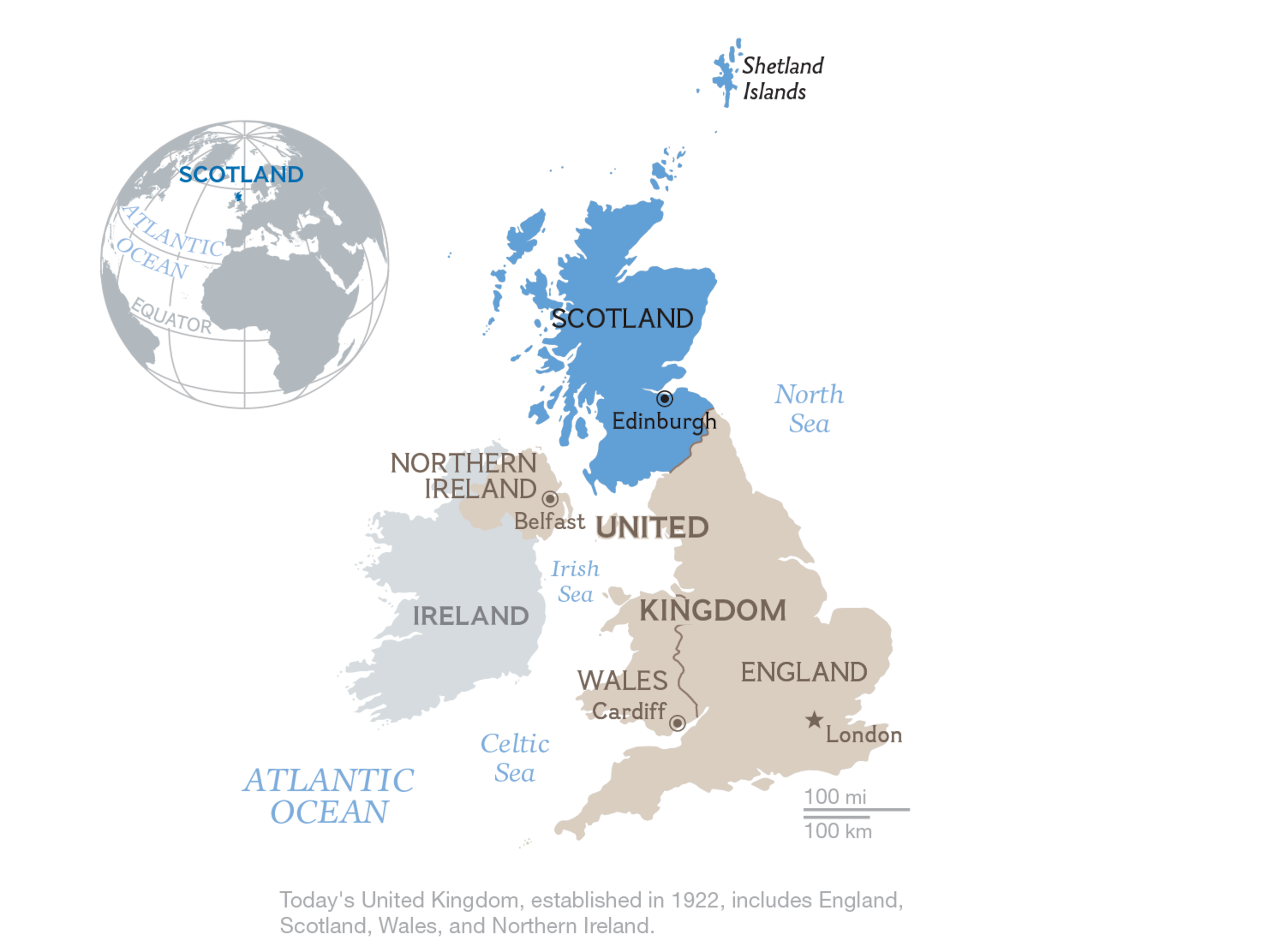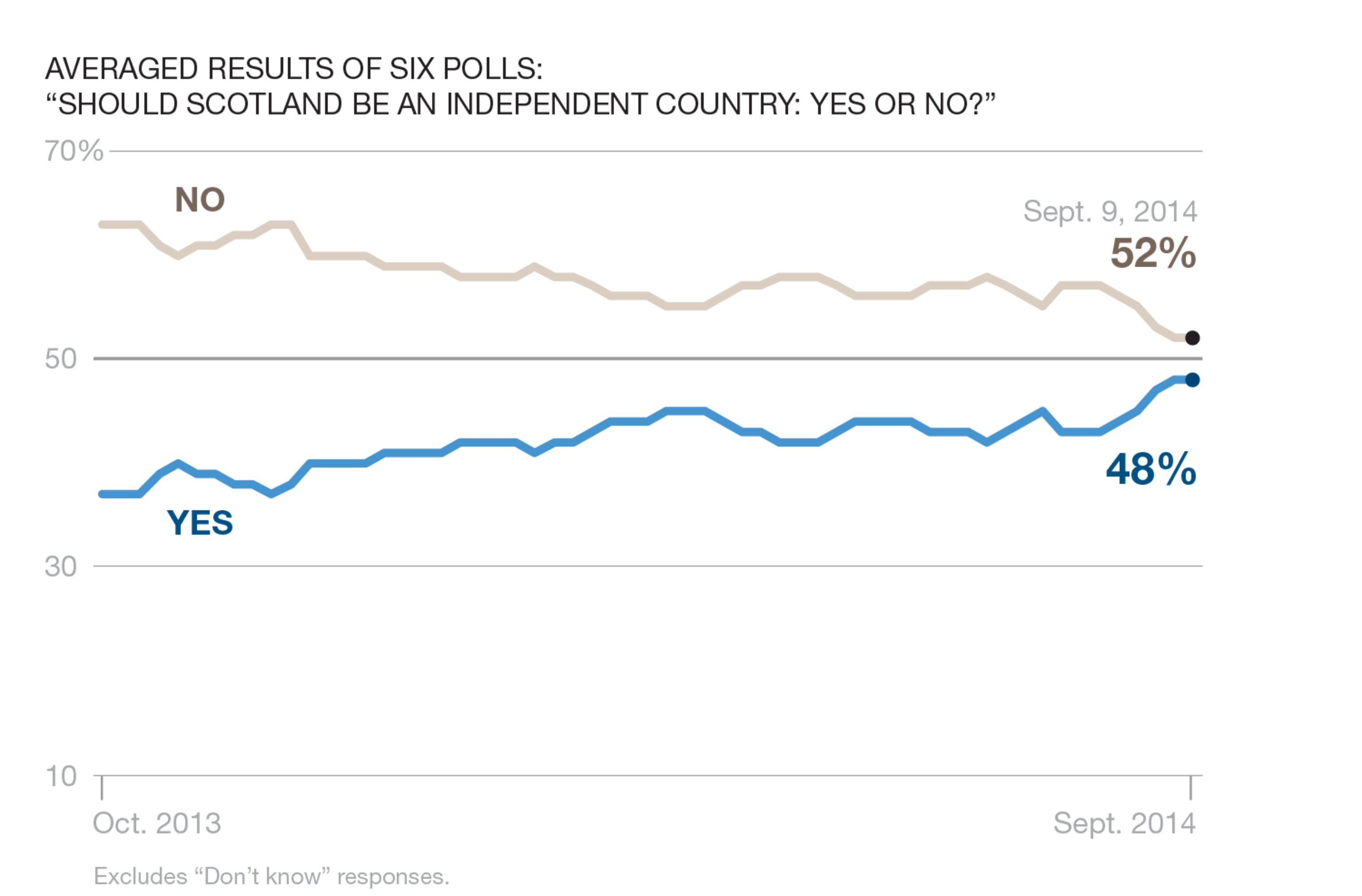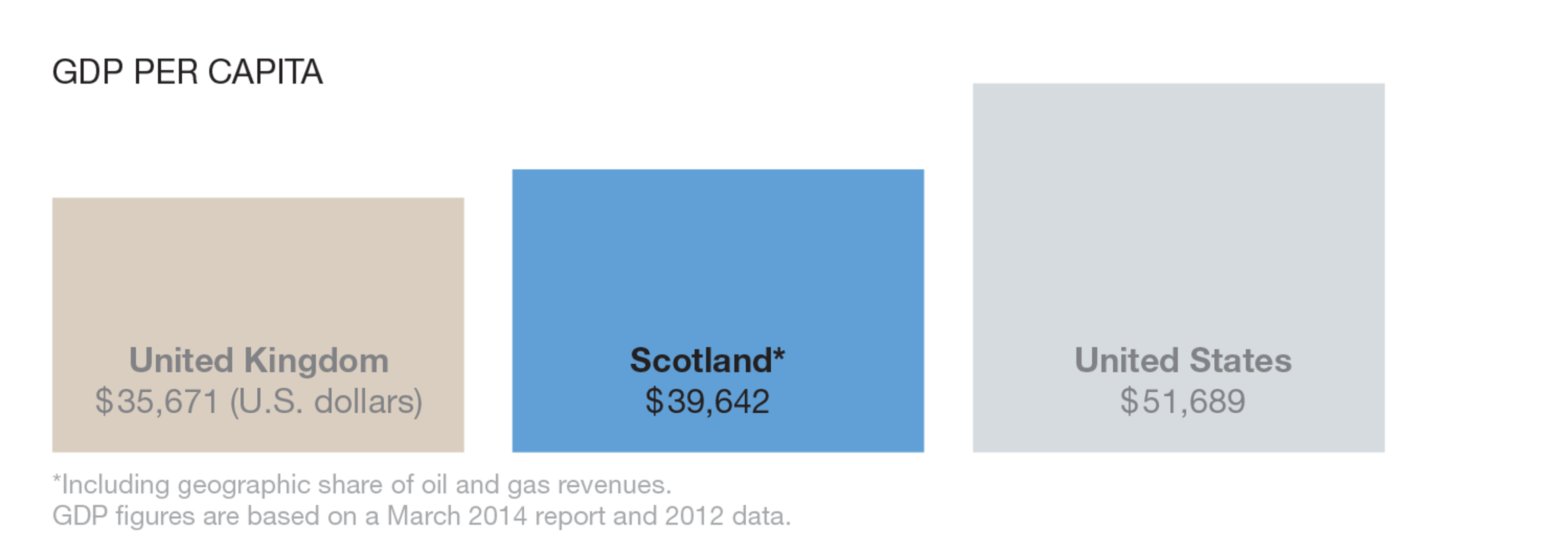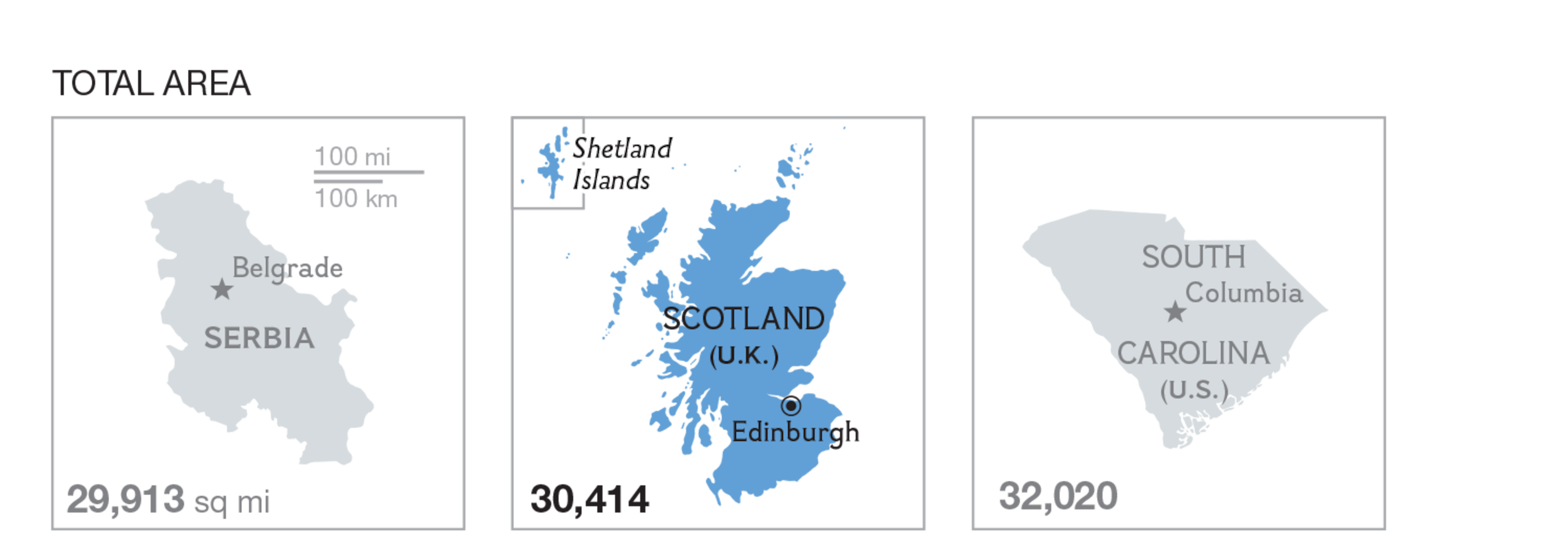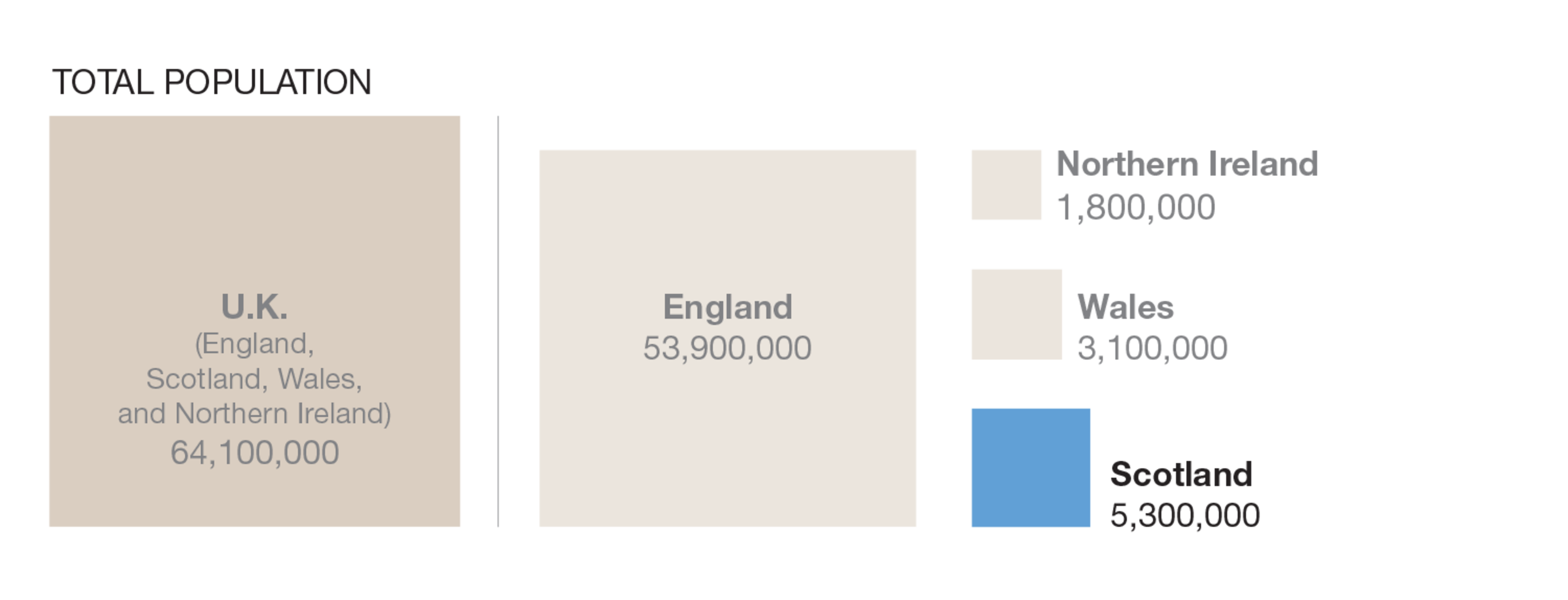Scotland, England, and Wales have been united as Great Britain since 1707, but more than three centuries of shared history could finally be coming to a close. The union will be put to the test on September 18, when voters take to the polls to decide a widely anticipated referendum determining Scotland’s status.
The referendum will not only test the desire for greater powers for the Scottish government and financial autonomy, but also determine ownership of the lucrative North Sea oil and gas off Scotland’s coast. Besides allowing Scotland to retain more of its oil wealth, a successful bid for independence would mean keeping the pound for currency, pursuing NATO and European Union membership, and continuing allegiance to the queen.
The question facing Scots this month is a simple one, but with deep economic and political ramifications: Should Scotland be an independent country?
